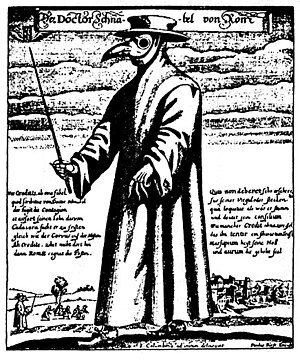Essential Living – Theives in the Modern Age


By: Tera Ertz
It’s that time of year again where temperatures drop and noses run. As I was pining for the warm cinnamon scent of some Thieves Oil this morning, I was reminded of some interesting research I did for a world history class a few years ago.
Benefits of Calamity: The effects of the Plague on Medical Science
During the initial outbreaks of the plague in Europe in the 14th century there was a great deal of speculation on causes and treatments, but little actual result from many of the traditional sources of scholarship on medicine at the time. Theories ranged from plague being a result of sin to it being a result of planetary alignment, and remedies ranged from covering the mouth or breathing in fumes to keep from breathing too much “poison air” to drinking one’s urine.
By the latter part of the century, during subsequent outbreaks, the medical and clerical professions had begun to collate the information on what had worked on their patients during the earlier outbreaks. Tracts were written rejecting the teachings of those like Hippocrates and the abstract philosophies of stellar alignment as cause, instead detailing herbal remedies and procedures that had allowed previous victims of the illness to survive.
It is interesting to note that in much of the research of the time, as well as much of the folk-lore today surrounding many herbal formulas, the presence of certain natural remedies is prevalent. Garlic is one of the most mentioned herbs used, and vinegar one of the most common carriers for herbal concoctions. Recent medical studies have shown that there may have been a scientific basis for the claims that gave rise to the popular folk-lore of the Four Thieves. Garlic, as well as several other herbs, do indeed have germ killing properties that may not be as effective as modern medicine, but likely would have has some efficacy in combating bacterial illnesses in the 14th century. Likewise, vinegar, while not the cure all many have purported it to be, also has an antibacterial effect that likely would have improved one’s chances during an outbreak of plague.
http://www.webmd.com/diet/apple-cider-vinegar
http://www.umm.edu/altmed/articles/garlic-000245.htm
http://davesgarden.com/guides/articles/view/2460/
http://www.historycooperative.org/journals/ahr/107.3/ah0302000703.html
It’s neat to know that even before electron microscopes and modern medical miracles nature still provided remedies to the ills of the world. We might not be in the middle of a plague outbreak, but the flu can be miserable, bronchitis can knock you out for weeks, and pneumonia is a clear and present danger to many. Essential oils aren’t a replacement for medical attention. They are a great way to chase away the winter blues and as research catches up with the remedies of old, there is more and more indication that they’re pretty good for chasing away the winter germs too.
Are you interested in learning more about essential oils? Would you like to try some out for yourself or give it as gift? Please stop by our Young Living store to get your Thieves Blend, either by itself, or with any of the terrific Thieves Product line.
Tera Ertz is the founder of Hope and Change Ministries, author of God Talk: The Beginning, mother of five, and a child of God. You can find her on Facebook, or subscribe to Hope and Change Ministries or Contagious Transformations to keep up with the latest.
